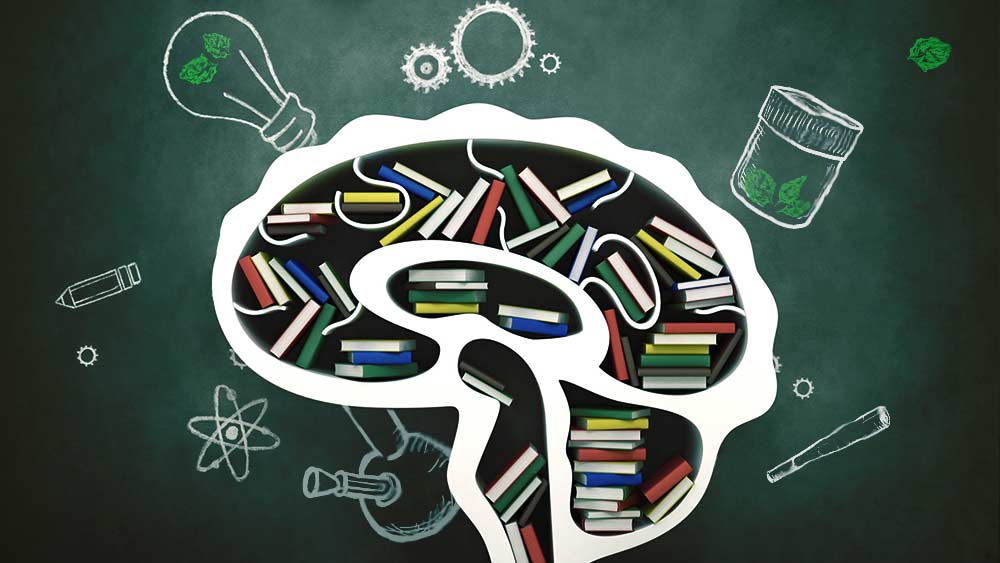For decades on end, scientists have been trying to figure out the seemingly insurmountable puzzle that is the relationship between cannabis and psychosis.
Even to this day, though the landscape is less confounded, it’s virtually impossible to draw a decisive conclusion regarding the causal (cause-effect) relationship between the two.
A lot of the confusion has to do with a limited number of methodologically sound studies that were conducted in the ‘80s, ‘90s, and early ‘00s. Most of these studies, in one way or another, concluded that cannabis can either increase the likelihood of developing a psychotic disorder (among vulnerable individuals) or even cause it.
However, because it’s highly implausible that we’ll ever conduct a “perfect” experiment which would require a very large sample (practical problem) and manipulation of cannabis use among the participants (ethical problem), we must be critical of the inferences drawn by researchers in the past.
To put it simply, most studies researching the link between cannabis and psychosis are and will be flawed.
That’s why, of late, we’ve witnessed a surge of critical reviews pointing out precisely this. Among the notable ones is an article written by Ian Hamilton and Mark Monaghan, published in Current Psychiatry Reports back in 2019.
What Seems to Be the Problem?
According to Hamilton and Monaghan, in contemporary literature, there are three different hypotheses that outline the possible link between cannabis and psychosis:
- Cannabis can be responsible for triggering psychotic disorders among non-vulnerable individuals;
- Reverse causation hypothesis, which states that predisposed individuals might use cannabis as a means of mitigating prodromal (the period between first symptoms and onset of the condition) symptoms;
- The relationship between cannabis and psychosis is caused by other factors such as genetics or childhood trauma.
Authors claim that each one of these hypotheses has a hard time standing on its own due to a number of methodological shortcomings from which these studies are suffering.
For example, one of the major problems in claiming that cannabis can trigger schizophrenia is that researchers usually rely on observational methods. Moreover, because the dose of cannabis plays a crucial role in amplifying the risk of psychosis, researchers don’t have a consensus on what that dose might be (to some it’s more than 50 exposures, while others rely on past month usage).
Reverse causation hypothesis insists that individuals predisposed to schizophrenia use cannabis to cancel out the first negative effects of their developing conditions. However, most of these individuals claim that their main motivation behind cannabis use is pleasure and recreation, not mitigation of adverse symptoms.
Lastly, while many other factors confound the relationship between cannabis and psychosis, objectively speaking, it’s important to point out that genetic research on its own hasn’t done much to contribute to our understanding of this intricate relationship.
Relying solely on biology and genetics would somewhat oversimplify the matter because culture and other environmental factors hugely influence our health and habits.
But, that’s not all.
Both the initial studies and subsequent ones almost exclusively dealt with all-male samples. If one of the goals of understanding the relationship between cannabis and psychosis is to improve or create better public health interventions, learning more about the differences between sexes, in regards to the risks of developing mental health conditions, is necessary.
On top of that, western hegemony is another serious issue that significantly blurs our understanding of the matter. Plainly put, samples in these studies were mostly drawn from the western countries. This issue isn’t a small one because culture drastically impacts not only our drug use but its consequences as well.
A Few Words From Mr. Hamilton
Luckily for us, Mr. Hamilton was gracious enough to answer some our questions about this issue and Mr. Monaghan’s critical review of contemporary literature on cannabis and psychosis.
We thought that presenting his answers here would help broaden our collective understanding of the matter, leaving fewer stones unturned.
First, we wanted to demystify the way in which culture influences the relationship between cannabis and psychosis, so we asked Mr. Hamilton that. Here’s his response.
Culture not only influences the population use of cannabis but the way it is used. For example, unlike in the USA, in the UK, most people combine tobacco with cannabis when smoking a joint. The tobacco in a joint presents a far greater risk to health than that of developing psychosis.
But culture also influences the way psychosis is understood and treated. In western countries, we view mental health problems such as psychosis as having a biological basis and consequently treatment is based on a medical rather than social approach.
In many other countries, psychosis is often viewed through a spiritual or social lens which influences the way individuals are supported or not.
So clearly, when you have a combination of these two factors as you do with cannabis psychosis, the way people are treated and how the issue is understood is culturally sensitive and variable.
Our second question had to do with the epigenetic studies of cannabis and psychosis. We were interested if they are being done at all, and what’s Mr. Hamilton’s opinion of them.
There are several epigenetic studies investigating cannabis psychosis, my view is that this has been at the expense of investigating the social aspects.
For instance, as cannabis psychosis is culturally sensitive, we need a better understanding of how this shapes people’s experience and society’s response including professionals such as psychiatrists and psychologists.
The other issue is what do you do with the information from epigenetics once you have it. If a gene is identified that predisposes people to cannabis psychosis, that information is only as good as the ability or willingness of people to act on it. I think that asking some people to refrain from using cannabis as they have an elevated risk of developing psychosis is unlikely to be acted on by some.
In recent years, we’ve heard a lot of talk about increasing levels of THC in various cannabis strains. This is relevant because studies conducted decades ago weren’t dealing with strains as intoxicating as the ones we have nowadays. So, we asked Mr. Hamilton how higher THC levels affect the relationship between cannabis and psychosis.
As far as we know it’s not just higher levels of THC that increase the risk of an acute psychosis but also the absence or reduced levels of cannabinoids, so the ratio of THC/CBD seems to be important.
Some studies pointed out that chronic cannabis abuse creates a greater risk of developing a mental health condition. Is that really true?
As with most drugs, including alcohol, dose and frequency increase the risk of developing mental health problems, but it’s important to stress that we can’t always be sure of the direction of that relationship. It might be that those who are more likely to develop a mental health problem are also more likely to use drugs more frequently and at a higher dose.
Lastly, we wanted to know what can we learn from the fact that most studies include all-male samples? Does that mean that men are more prone to experiencing psychosis than women?
Even in 2020, we still know far more about the prevalence and outcomes for men and cannabis psychosis than we do for women. This clearly limits not only our understanding of how common this problem is for women but how long they have the problem and any gender-specific aspects such as symptoms or outcomes in addition to gender tailored treatment.
We have this male-orientated view as men are more likely to access treatment and treatment settings are where most research is conducted. But it also tends to be men in senior research positions who conduct research into this issue, this risks missing any female insights.
Where Do We Stand?
Cannabis and psychosis clearly seem to have a bond.
However, it would be dangerous to say that it’s a causal one. The truth is, we don’t have enough evidence to support such a claim.
Many factors influence the state of our well-being and mental health, making it extremely difficult to experimentally cancel out all of them but one.
If our goal is to be as objective as possible, settling for oversimplification through pure biological, genetic, or even social explanations won’t cut it. The reality is, all of these influences are intertwined and create a complex net of factors that contribute to the way we are.
Until a perfect experiment is conducted, we’ll simply have to settle for “we don’t know”. Drug abuse is just one of the risky behaviors commonly found among people with mental health conditions.
But risky behaviors and their repercussions cannot be held accountable for the onset of mental health conditions. Childhood trauma, possible genetic predispositions, culture, and many other factors massively contribute to the matter.
After all, nowadays, more people consume cannabis than ever before. But we haven’t witnessed a spike in the incidence of psychosis. If the relationship between the two was causal, wouldn’t that be the case?





Aias-Theodoros Papastavrou, MD, PhD April 20, 2020 at 5:02 pm
Thank you Mirko. Excellent work. I agree with your moderate stance. As a clinician, when in doubt, I prefer to err on the safe side. Kind regards Aias-Theodoros Papastavrou, MD, PhD Medical director-Biomed Aid Ltd